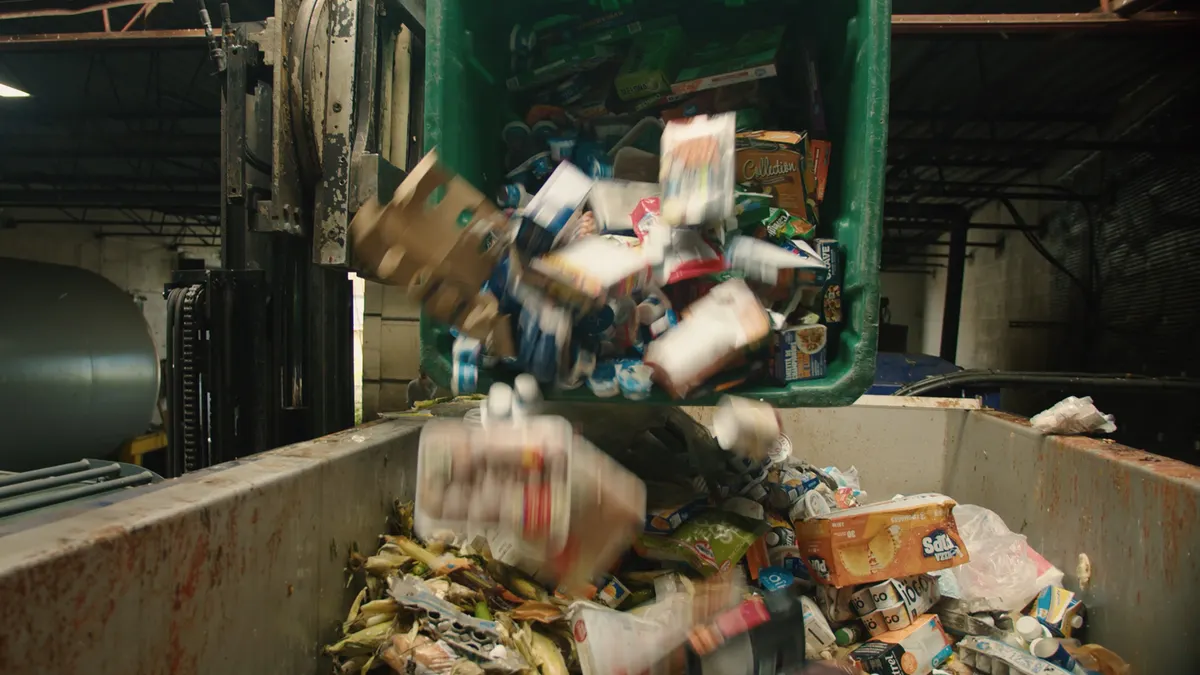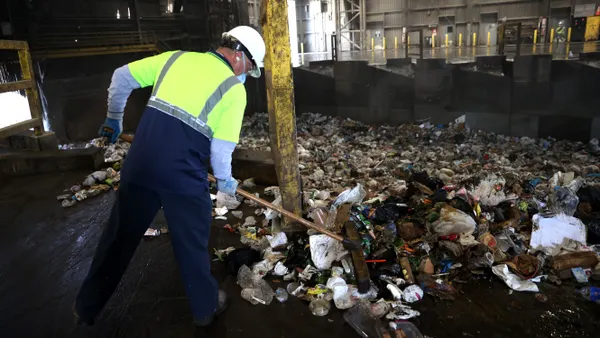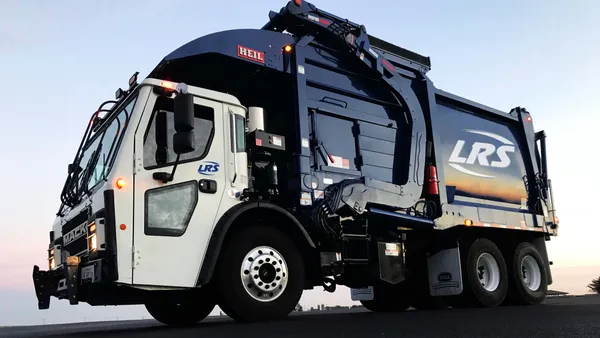Dive Brief:
- Ontario-based organics processor Minus Waste Solutions received a "significant" growth equity investment from the Canada Business Growth Fund that will fuel the company as it doubles its fleet and dramatically expands its processing power, the company announced this month. It didn’t specify the exact amount.
- Minus currently owns a fleet of 12 vehicles and two processing facilities in the Toronto area. It serves commercial and industrial customers, predominantly hauling preconsumer organic waste and turning it into a slurry. The investment will help the company grow its mission to reduce the environmental impact from transporting and disposing organic waste, President Louis Anagnostakos told Waste Dive.
- "Minus Waste Solutions has built a highly differentiated and scalable platform in the waste management industry," Dale Tingley, co-managing partner at Canada Business Growth Fund, said in a statement. "We look forward to supporting their continued growth and helping them achieve their vision for a more sustainable future."
Dive Insight:
The organic waste recovery space in North America continues to receive investment from private equity and other sources of capital, as disposal costs rise and environmental mandates tighten. So far this year, the industry has charted 35 private capital deals totaling more than $300 million of investment, according to food waste solutions nonprofit ReFed's Capital Tracker.
Anagnostakos is a veteran of the waste and recycling space in Canada. He previously founded Turtle Island Recycling, which neared $100 million in revenue before selling to GFL Environmental in 2011.
Anagnostakos also founded Orca Digesters, which provides on-site anaerobic digestion technology to remote customers that can't access traditional organics processing services. Orca's systems have been deployed in seven countries so far, Anagnostakos said. Both Orca and Minus Waste Solutions are a part of Minus Global Holdings.
Private equity firm Kensington Capital Partners invested in Minus Waste Solutions in 2022, netting a "significant stake," per Anagnostakos. Kensington made an additional investment in the most recent funding round.
Minus has enough capacity to process about 150,000 tons of organics per year, but it's planning to add two new facilities in the next quarter, Anagnostakos said.
Besides providing an alternative to disposal for organics, the company is also working to help its clients reduce the transportation cost of organics. That often entails crafting a reverse logistics plan.
For example, Minus worked with a large supermarket chain to containerize its organic waste and have employees load trailers with the material after they'd been emptied of fresh groceries. The trailers would then transport the waste back to the supermarket's distribution center — a trip the truck would have made anyway — giving Minus a central location to collect the material.
"It works for them," Anagnostakos said. "It’s crushed costs."
Minus is on track to open two new facilities in the next quarter, Anagnostakos said. In the next five years, he hopes to manage half a million tons of organics "with far less trucks on the road than are required today," he added.
The company is also planning to spend some of its new capital on acquisitions, continuing its M&A strategy. Minus Global Holdings previously acquired food and liquid waste management company Future Waste in 2023 and Planet Earth Recycling in 2022. Anagnostakos said Minus would focus on adding to its existing food waste processing capabilities rather than adding composting or anaerobic digestion capabilities.
"Pureplays are difficult to find, but we’re finding some interesting opportunities to look at," he said.












